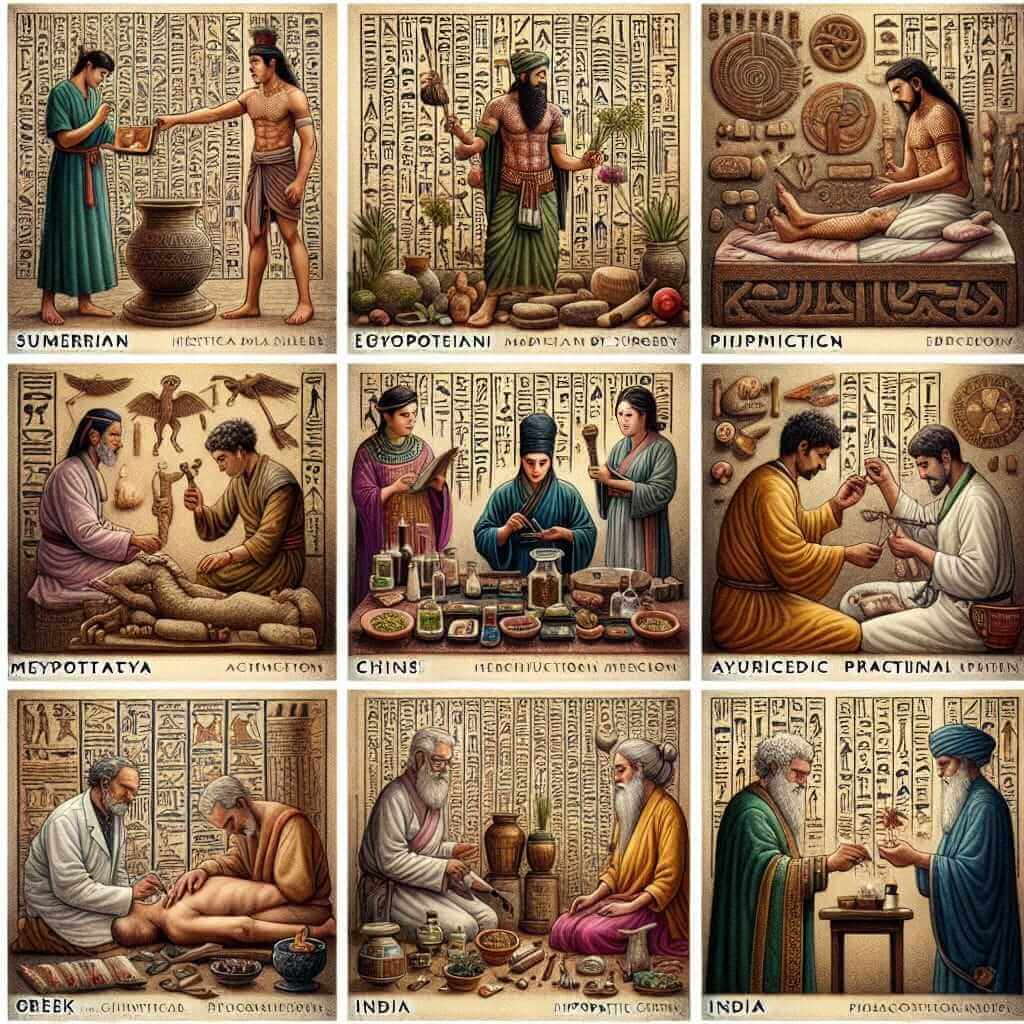The IELTS Reading section is designed to assess a candidate’s ability to comprehend academic texts. One common theme in past reading passages has been historical analysis, particularly of ancient medical practices. Given the intriguing nature of this topic and its relevance to various fields, it’s a plausible subject for upcoming IELTS exams. In this guide, we will simulate a detailed reading passage on the “Historical analysis of ancient medical practices” and provide a comprehensive set of questions to help you practice.
Recent trends in IELTS Reading passages have shown an increasing interest in historical and scientific topics. Thus, understanding how ancient civilizations approached medical practices can provide a captivating yet challenging reading exercise. This guide combines a realistic IELTS format with expert advice to enhance your study session.
Main Content
Reading Passage
Historical Analysis of Ancient Medical Practices
The study of ancient medical practices offers a window into the earliest attempts at understanding and treating the human body. These practices, originating from Mesopotamia, Egypt, China, India, and Greece, have laid the foundation for contemporary medical knowledge. This passage delves into the intricacies of ancient medical methodologies and their lasting impact on modern medicine.
Ancient Mesopotamians are among the first recorded practitioners of medicine. They used a blend of superstition and herbs to treat ailments, believing that diseases were punishments from the gods. Clay tablets from around 2000 BCE describe numerous remedies for common illnesses, featuring ingredients like myrrh, honey, and cedar oil. Similarly, ancient Egyptian medicine included detailed surgical techniques, as evidenced by the Edwin Smith Papyrus.
In China, the earliest medical texts, such as the Huangdi Neijing, from around 300 BCE, introduced concepts such as yin and yang and the five elements. These concepts laid the foundation for traditional Chinese medicine. Alongside this, ancient Indian texts like the Atharvaveda and Ayurveda—which dates back to around 1500 BCE—highlighted the importance of balance among body, mind, and spirit.
Greek medicine, which significantly influenced Western medical thought, saw notable contributors like Hippocrates and Galen. Hippocrates, often hailed as the “Father of Medicine,” dismissed superstitions and emphasized a systematic approach to disease treatment, advocating for observation, diagnosis, and prognosis. Galen’s expansion on Hippocratic theories became a reference point in both the Roman Empire and medieval Europe.
The transmission of these ancient practices to modern times underscores their importance. Many contemporary medical terminologies and techniques have roots in these early beliefs and methods. Despite the ancient origin, the principles of balance, observation, and natural remedies remain relevant.

Questions
Multiple Choice
-
What was the primary belief regarding the cause of diseases in ancient Mesopotamia?
- A. An imbalance of bodily fluids
- B. Punishments from the gods
- C. Bacterial infections
- D. Poor hygiene practices
-
Which ancient civilization’s medical practices included the concept of yin and yang?
- A. Mesopotamian
- B. Egyptian
- C. Greek
- D. Chinese
True/False/Not Given
-
The Edwin Smith Papyrus is a Greek text detailing various surgical techniques.
- True
- False
- Not Given
-
Ayurveda is a form of traditional Chinese medicine.
- True
- False
- Not Given
Matching Information
Match the following ancient medical texts to their respective civilization:
A. Edwin Smith Papyrus
B. Huangdi Neijing
C. Atharvaveda
- Egypt
- China
- India
Sentence Completion
- Hippocrates is often referred to as the “__.”
- Galen expanded on ____ theories, influencing medicine in medieval Europe.
Answer Key
Multiple Choice:
- B (Punishments from the gods)
- D (Chinese)
True/False/Not Given:
- False (It is an Egyptian text)
- False (Ayurveda is an Indian practice)
Matching Information:
- A – 1 (Edwin Smith Papyrus – Egypt)
- B – 2 (Huangdi Neijing – China)
- C – 3 (Atharvaveda – India)
Sentence Completion:
- “Father of Medicine”
- “Hippocratic”
Common Mistakes in Reading
-
Skimming vs. Scanning: Many students fail to effectively utilize skimming and scanning techniques, leading to missed answers. Skimming helps locate the general area where the information might be, and scanning finds the specific details.
-
Vocabulary: Misunderstanding key words can lead to incorrect answers. Always make a list of difficult words and their meanings while practicing.
-
Time Management: Spending too much time on a single question can be detrimental. Practice keeping track of time to ensure completion.
Vocabulary
- Ailment (n.): /ˈeɪlmənt/ – An illness, typically a minor one.
- Remedy (n.): /ˈrɛmɪdi/ – A medicine or treatment for a disease or injury.
- Diagnosis (n.): /ˌdaɪəɡˈnəʊsɪs/ – The identification of the nature of an illness or other problem.
- Prognosis (n.): /prɒɡˈnəʊsɪs/ – A forecast of the likely course of a disease or ailment.
Grammar
Many IELTS Reading passages contain complex sentences. Understanding these structures is pivotal:
- Passive Voice: Often used to describe actions where the subject is not the doer. E.g., “The texts were written by ancient scholars.”
- Relative Clauses: Used to add extra information. E.g., “The Edwin Smith Papyrus, which details surgical techniques, is an Egyptian text.”
Conclusion
For a high score in the IELTS Reading section, regularly practice with themed passages like the “Historical analysis of ancient medical practices.” Focus on enhancing your skimming, scanning, vocabulary, and grammatical knowledge. Keep practicing different question types and manage your time efficiently. Good luck!